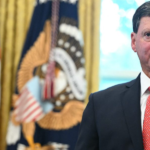One of the first things Pope Leo XIV may need to do as the newly elected leader of the Catholic Church has nothing to do with religion, but rather finances: finding an accountant.
“Although there is no accounting for the discretion that might be brought to bear, the new pope is unlikely to be exempt from U.S. income taxes. U.S. tax law claims the right to tax all citizens on their worldwide income. There is no blanket exception for religious personnel nor for people who are diplomats/head of state for foreign countries such as the Vatican,” said Fogarty.
The Treasury Department did not immediately respond to Fortune’s question on whether the pope could receive an exemption.
Filing a tax return is obligatory for all citizens, and if the laws were applied as they would be for every other citizen, Leo XIV may face a hefty tax bill.
“No matter where a religious leader is based, they still have to pay U.S. taxes on their income if they keep their U.S. citizenship,” Castaneda said.
A spokesperson for the IRS declined to comment to Fortune about Pope Francis’ tax liability.
“By law, federal employees are barred from disclosing tax return information,” the spokesperson said.
Still, the pope may have some, but not many, options for reducing his tax bill, Linda Jensen, the founder of Heart Financial Group, told Fortune.
Apart from the $14,600 standard deduction, Leo may be eligible to deduct costs associated with his housing if he receives an allowance or lives in Vatican-provided housing like the papal apartments or the deceased Pope Francis’ preferred residency, Casa Santa Marta.
The IRS allows religious leaders to deduct the lesser of an official housing allowance, actual housing expenses, or the fair rental value of the home (including furnishings and utilities), from their tax bill, said Jensen.
Members of the clergy are considered self-employed for the purposes of Social Security and Medicare taxes, Jensen said, but if Pope Leo previously claimed a conscientious religious objection to public insurance early in his career, he may be off the hook for those taxes.
Usually, Americans who earn money abroad are able to deduct $130,000 of foreign earned income, but it’s doubtful this would apply to Leo XIV as the rule excludes income earned from a foreign government, like the Vatican.
“As a U.S. citizen abroad with significant foreign ties, he has complex reporting obligations. Even the Pope might need a great CPA,” said Jensen.









